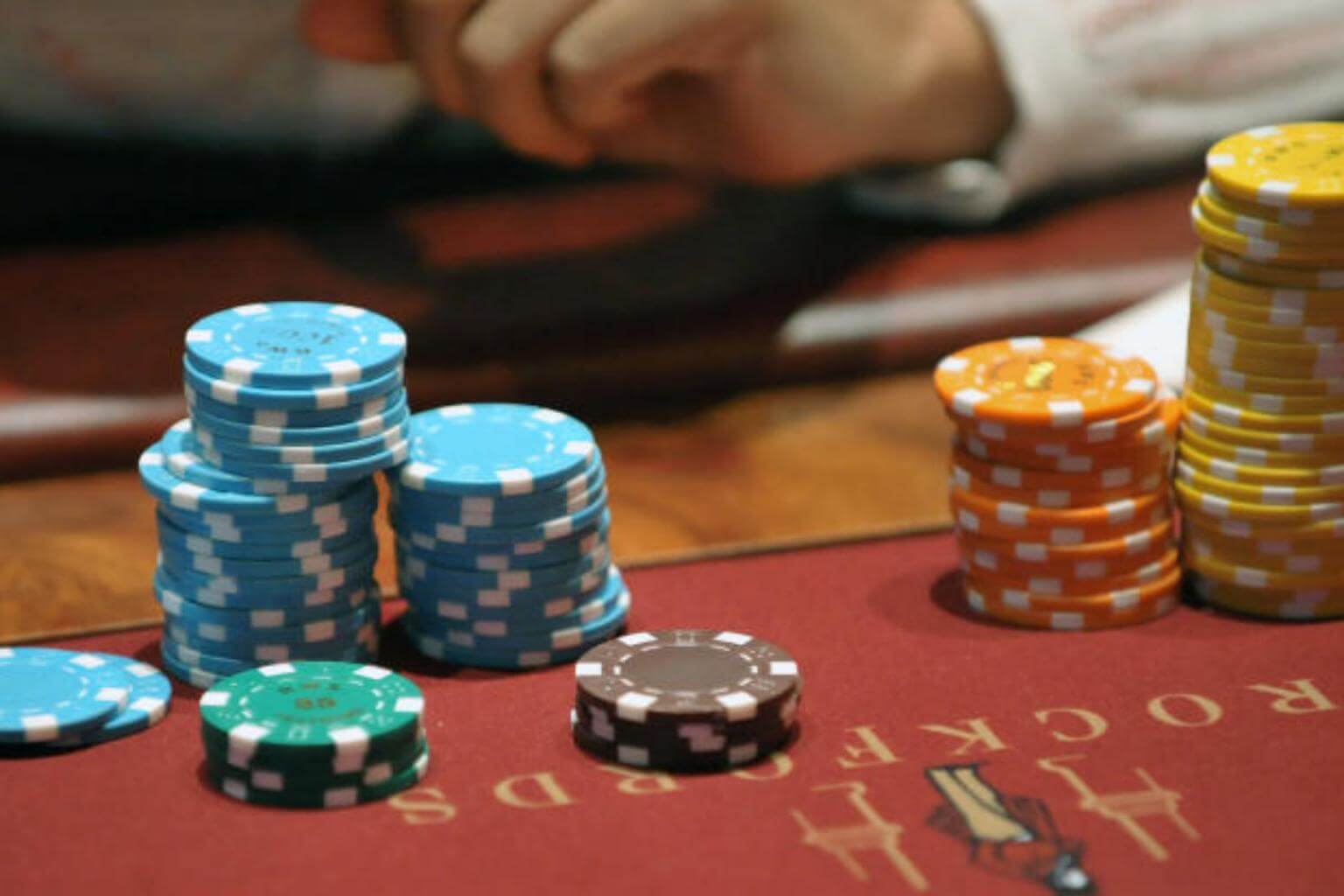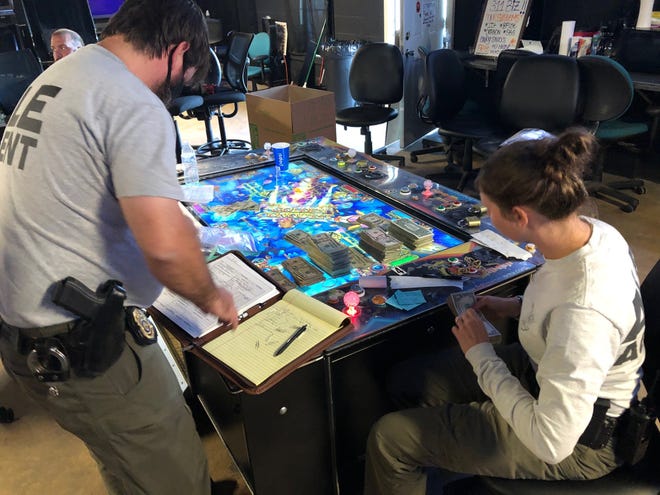Two Up Gambling Illegal
Gambling can be found everywhere from physical casinos to a multitude of online websites and apps.It is easier than ever to gamble in the privacy of home or on the go with a smart phone. It’s easy to place bets with PayPal, credit cards, bitcoin, or money-transfer apps. All of this ease has led to an increase in gambling addiction across the world.
The illegal gambling business allegedly managed by Oxendine involved five or more people, remained in substantially continuous operation for more than 30 days, and had a gross revenue exceeding. Truly private gambling usually isn't illegal. Check your local laws, but no one really cares about poker night with the guys. Federal government has largely left gambling regulations up to each state, which means that gambling may be illegal where you live, or it may be advertised on every street corner, as it is in places like Las Vegas, Nevada. The result is a patchwork of awareness campaigns and treatment programs that vary widely in their responsiveness. Illegal gambling is a criminal offense, and can result in jail time. The punishment for participating in illegal gambling may change with the type of gambling or amount wagered, and can be especially severe if you are holding games or lotteries for personal profit. Certain activities may constitute gambling that are not listed here.
Gambling does not lead to a physical dependence like opioid drugs or alcohol, but it can destroy relationships, jobs, finances, and dreams.
Problem gambling can become a compulsive behavior and gambling can be emotionally addictive. Addictions to behaviors (as opposed to addictive substances) are known as “process addictions,” and, just like substance addictions, they require supportive treatment. Specialty rehab programs and support groups are available for people who struggle with gambling addiction. If you or someone you love struggles with gambling behavior, you are not alone. One look at the statistics behind gambling addiction reveal that this problem is prevalent… but treatment is available.
What is Gambling Addiction?
Gambling addiction begins once betting and gambling behavior causes distress, becomes habitual, leads to financial stress, disturbs everyday life functioning, or negatively impacts relationships. This condition (also known as compulsive gambling or pathological gambling) often leads people to experience an uncontrollable urge to engage in gambling despite the negative effects it might have in their lives.
Once gambling addiction has begun, the person who can’t stop betting may continue to chase the high of a big win, even if it involves continuous loss, lying, cheating, or even stealing to support the habit of gambling. In severe cases, it almost seems like the addicted person experiences a personality shift, but it is possible for a person to hide a gambling addiction and continue working and participating in everyday life, all while consequences build up behind the scenes.
Compulsive Gambling:
United States Gambling Addiction Statistics
The North American Foundation for Gambling Addiction Help reports that approximately 2.6% of the U.S. population has some type of gambling issue. That adds up to nearly 10 million people in the United States who struggle with a gambling habit. This issue adds up to approximately 6 billion dollars each year, which impacts the U.S. economy and citizens.1


Gambling costs American taxpayers. Public funding for problem gambling went up to $73 million in 2016, but despite those costs, gambling remains regulated by each state, and is not federally regulated. Ten states (and the District of Columbia) do not offer any publicly funded gambling assistance. These funding discrepancies mean that public treatment services can vary widely from state-to-state, and the level of care in publicly funded programs also varies greatly.2
The U.S. federal government has largely left gambling regulations up to each state, which means that gambling may be illegal where you live, or it may be advertised on every street corner, as it is in places like Las Vegas, Nevada. The result is a patchwork of awareness campaigns and treatment programs that vary widely in their responsiveness.
States that discourage or prohibit gambling tend to not offer awareness campaigns, and as a result, people who gamble through their phones or computers may be missing information about the dangers of gambling. Awareness of the problem is key to making changes for the better.2
Susanne’s Story
“There was only one remedy, according to my brain: change my seat and do it again and again until I became the big winner. I don’t have to tell you that I left the casino frustrated and with zero dollars in my pocket. In chasing [the] money I had lost, I went to the ATM, took another $200 from my bank account and lost that as well, all while chasing that high of winning.
“The regret, shame, and guilt all came to me instantly on the way home. The next day, I was already contemplating going back. I started thinking that I should forget about that unlucky day — I thought, ‘Today, it will be all different.’”
Read Susanne’s blog about process addictions and more at www.HeroesInRecovery.com
How to End Gambling Addiction
Gambling doesn’t only devastate individuals; it is a family issue. Because this particular problem directly impacts family and personal finances, family members who have gambling problems often hide their issue and feel a great deal of shame and secrecy. In severe cases, the problem may go undetected until finances become a major issue. Gambling can destroy relationships, but it is possible to rebuild trust and rebuild finances. No gambling problem has to be permanent. Help is available.
Integrated treatment for co-occurring disorders offers specialty treatment for problem gamblers. A co-occurring disorder happens when someone suffers from more than one problem, such as gambling and anxiety, or gambling and depression.

When you seek treatment that aids both concerns at the same time, healing can be more thorough and results will last longer.
Gambling addiction is often progressive in nature, so it is important to seek treatment as quickly as possible. Don’t let shame, embarrassment, or secrecy keep you from joining hundreds of thousands of people who are now living a better life. The only thing you need to get better is a willingness to accept help from others. It’s far better to invest in your long-term happiness and recovery than it is to continue down the financial path of gambling.
Contact Skywood Recovery today to learn more about your options for a better life. We are here to help and our confidential helpline, 269-280-4673 can offer solutions for a better life.
Sources
1 North American Foundation for Gambling Addiction. Statistics of Gambling Addiction. 2017.
2 Nevada Council on Problem Gambling. 2016 Survey of Problem Gambling Services in the United States. 2016.

How can we better support your business through COVID-19 recovery? Take our survey and let us know.
If poker involving gambling is played outside of a licensed casino, it may constitute an unlawful game under the Criminal Code Act 1899. Unlawful gambling is subject to penalties and can be reported to the appropriate authority.
Section 230A of the Criminal Code provides that an unlawful game means a game of chance, or mixed chance and skill that:
- is not authorised under an Act
and - is played by 1 or more persons (players) who gamble or bet on an outcome of the game for the purpose of winning money or another consideration
and - has at least 1 of the following characteristics
- the game is conducted or played in a public place
- the game is played in a place, or part of a place, the occupier of which allows, on payment or money or for other consideration, players to enter and use for playing the game
- percentage of the amount gambled or bet is
- kept by 1 or more of the players, or another person
and - not included in the winnings of the players.
- kept by 1 or more of the players, or another person
The Queensland Police Service (QPS) is the primary agency responsible for administering the Criminal Code.
In order for a poker game to fall within the definition of an unlawful game, the act of gambling or betting has to occur. In this regard, the conduct involves money being bet or gambled on an outcome in a game of which the winners are decided by chance or a mix of chance and skill.
Further, in accordance with the concepts of betting or gambling, the reward for winning a bet is dependent upon the amount of money waged (whether it be via a single hand or consecutive wagers placed on a game). This means that during the course of betting or gambling there is a correlation between risk and reward (i.e. the greater the amount waged, the higher the winnings payable).
While all enquiries or complaints are assessed on a case-by-case basis, any person conducting a poker tournament on licensed premises should seek their own legal advice prior to conducting the game or tournament to ensure that they fully comply with legislative requirements.
Two Up Gambling Illegal Laws
However, in general terms providing there is no gambling or betting involved:
- entry fees or buy-ins are permitted provided there is no gambling or betting with money or other consideration
- entry fees to enter the venue may be charged by licensed premises
- poker tournament prizes are not prohibited but should be stated in the terms and conditions of the tournament.
Also consider...
- Read the Criminal Code Act 1899.
- Read the Charitable and Non-Profit Gaming Act 1999.
- Read the Gaming Machine Act 1991.
- Learn more about your rights, crime and the law.

- Last reviewed: 25 Jun 2019
- Last updated: 26 Jun 2019
General enquiries 13 QGOV (13 74 68)
- Licence and permit enquiries
Cached
1300 072 322
OLGRlicensing@justice.qld.gov.au
Two Up Gambling Illegal Immigrants
- Gaming compliance enquiries
Gambling Addiction Statistics Skywood Recovery
- Liquor compliance enquiries
10 Countries Where Gambling Is Completely Illegal
- Media enquiries (07) 3738 8556



